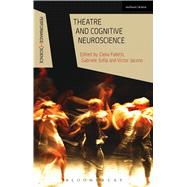The field of interdisciplinary research on art and neuroscience is fast expanding, and this is the first volume to provide a detailed introduction to some of the main areas of research and practice, drawing on contributions from neuroscientists, theatre scholars and artists. As such it offers readers an exciting insight into the international panorama of ongoing interdisciplinary research between the fields of theatre and neuroscience. Divided into four parts, each prefaced by an expert editorial introduction, it explores:
* Theatre as a space of relationships: a neurocognitive perspective
* The spectator's performative experience and “Embodied Theatrology”
* The complexity of theatre and human cognition
* Interdisciplinary perspectives on applied performance
Each part includes contributions from international pioneers of interdisciplinarity in theatre scholarship, and from neuroscientists of world-renown researching the physiology of action, the mirror neuron mechanism, action perception, space perception, empathy and intersubjectivity.
While illustrating the remarkable growth of interest in the performing arts for cognitive neuroscience, the volume reveals both the difficulties but also the enormous benefits arising from interdisciplinary research.








